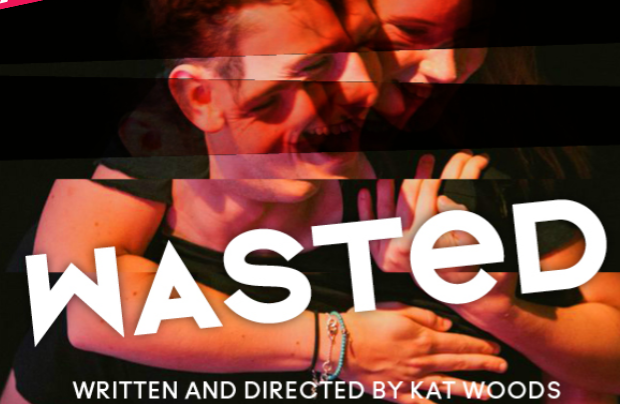Baltimore Center Stage presents “Wasted,” a play that gives attention to consensual sex and the dangers of a drunken night. It follows the stories of Emma and Oli who meet at a bar. Emma, left without any money or access to her phone, becomes too intoxicated to even remember her address. Oli decides to take her back to his apartment out of supposed kind intentions; however, the lightheartedness of the night quickly fades when seemingly harmless Oli abuses Emma’s drunken state and rapes her.
Emma wakes up the next morning without a single cohesive memory from the night before, yet fully aware she had had sex after evaluating her body. She is conflicted and debates whether to get authorities involved. She blames herself for giving Oli flirtatious signals, wearing a low cut dress and getting too drunk to be fully alert.
Emma believes herself to be the cause of her own rape, and so downgrades the severity of the very violation of her body. Her friend eventually convinces her to take legal action, and the play follows both the perspectives of Emma, a victim, and Oli, her rapist, as they face the lifelong consequences of the night before.
The play carries a distinct genuineness that is very admirable. The audience is shown the individual internal conflict of the characters. Emma, conditioned to strict gender roles, wrongfully blames herself for her own rape before realizing that no matter her condition or behaviors, absolutely nothing could ever give someone the right to violate and rape her.
Oli, having repeatedly recounted the events of the night before, still sees himself as innocent. He remembers Emma’s consciousness and believes that her wakeful state in itself served as consent. Oli did not learn what true consent was until he was in the courtroom being tried for rape.
This further forwarded the message that the meaning of full consent should be widely shared information; the guidelines of consent should be well known worldwide. The more educated society is about consent, the less normalized non-consensual sex will hopefully become.
It does not matter what people wear, how they talk, the forwardness of their body language — no human has the right to act upon another human’s body without complete, conscious consent. As members of society, each person is responsible for establishing what is and is not acceptable behavior. Rape is unacceptable and should be treated as so.
No matter the legal outcome of the trial, Emma and Oli will both continue to suffer the consequences of that drunken night for the rest of their lives. What most stories look over is that there is great mental and emotional turmoil that accompanies such events. However, the script of “Wasted” effectively portrayed the ongoing conflict between feelings such as guilt and pain; this is what makes the messages of the play rightfully haunting and memorable.
Writer and director Kat Woods did a phenomenal job with portraying these dire messages through theatrical art. The play shines a light on consent and the sometimes blurred lines of drunken sex. It is extremely moving and effective, especially regarding recent allegations of UMBC’s mishandling of sexual assault cases. Baltimore Center Stage’s “Wasted” will be performed for only three nights from Sept. 20 to Sept. 22. Tickets can be purchased for 20 dollars at https://www.centerstage.org/plays-and-events/bernard-black-box/wasted.


